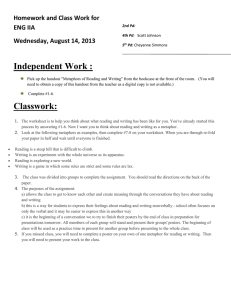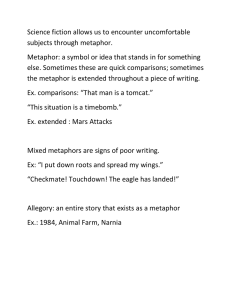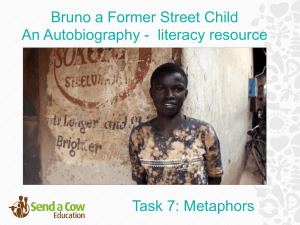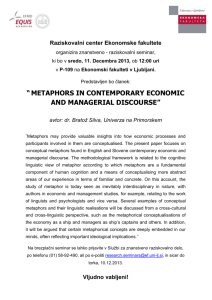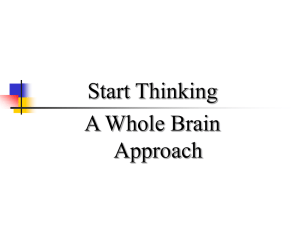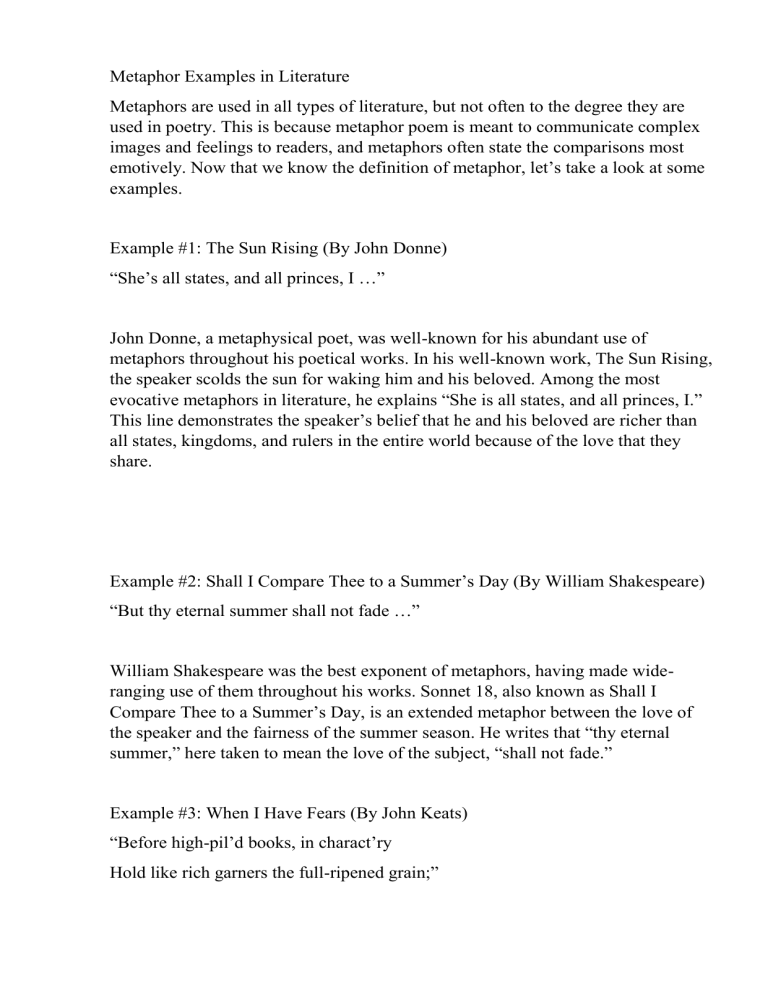
Metaphor Examples in Literature Metaphors are used in all types of literature, but not often to the degree they are used in poetry. This is because metaphor poem is meant to communicate complex images and feelings to readers, and metaphors often state the comparisons most emotively. Now that we know the definition of metaphor, let’s take a look at some examples. Example #1: The Sun Rising (By John Donne) “She’s all states, and all princes, I …” John Donne, a metaphysical poet, was well-known for his abundant use of metaphors throughout his poetical works. In his well-known work, The Sun Rising, the speaker scolds the sun for waking him and his beloved. Among the most evocative metaphors in literature, he explains “She is all states, and all princes, I.” This line demonstrates the speaker’s belief that he and his beloved are richer than all states, kingdoms, and rulers in the entire world because of the love that they share. Example #2: Shall I Compare Thee to a Summer’s Day (By William Shakespeare) “But thy eternal summer shall not fade …” William Shakespeare was the best exponent of metaphors, having made wideranging use of them throughout his works. Sonnet 18, also known as Shall I Compare Thee to a Summer’s Day, is an extended metaphor between the love of the speaker and the fairness of the summer season. He writes that “thy eternal summer,” here taken to mean the love of the subject, “shall not fade.” Example #3: When I Have Fears (By John Keats) “Before high-pil’d books, in charact’ry Hold like rich garners the full-ripened grain;” The great Romantic poet John Keats suffered great losses in his life — the death of his father in an accident and the deaths of his mother and brother through tuberculosis. When Keats himself began displaying signs of tuberculosis at the age of 22, he wrote When I Have Fears, a poem rich with metaphors concerning life and death. In the lines above, he employs a double metaphor. Writing poetry is implicitly compared with reaping and sowing, and both these acts represent the emptiness of a life unfulfilled creatively. Example #4: Vestiges (By Van Jordan) “… and jump in the sea and say, follow me, and know you would. The sea is cold and it’s deep, too, I’d joke, standing at the edge of the boat’s bow. A wind breathes across the sea, joining gently the edges of time.” Just spot different metaphors in these six lines by Van Jordan. This is the “sea” of time. This is an extended metaphor that is further expanded to its feature of coldness, depth, and then edges and voyage through it. Example #5: The Sun Rising (By John Donne) “Busy old fool, unruly sun, Why dost thou thus, Through windows, and through curtains call on us?” This is another example of a good metaphor where the sun is being called a fool by John Done, who is famous for his use of weird metaphors. Example #6: Paradise Lost, Book 1 (By John Milton) “Invoke thy aid to my adventrous Song, That with no middle flight intends to soar Above th’ Aonian Mount” This is a good metaphor by Milton, from his epic Paradise Lost. Here, Milton has compared his poetry to a dove. Example #7: i carry your heart with me (By E. E. Cummings) “…and it’s you are whatever a moon has always meant and whatever a sun will always sing is you …” Here E. E. Cummings has compared his beloved to the moon, as well as to the sun. This is another good metaphor by a modern poet. Example #8: The Storm (By Kate Chopin) “Her mouth was a fountain of delight. And when he possessed her, they seemed to swoon together at the very borderland of life’s mystery.” Just check the excellence of using a metaphor in just one sentence. The second one is its extension. Example #9: The Call of Cthulhu (By H.P. Lovecraft) “We live on a placid island of ignorance in the midst of black seas of infinity, and it was not meant that we should voyage far. The sciences, each straining in its own direction, have hitherto harmed us little; but some day the piecing together of dissociated knowledge will open up such terrifying vistas of reality, and of our frightful position therein, that we shall either go mad from the revelation or flee from the light into the peace and safety of a new dark age.”” Lovecraft has beautifully used metaphors to describe the situation in this paragraph. Just read the underlined phrases to see this metaphorical beauty.
